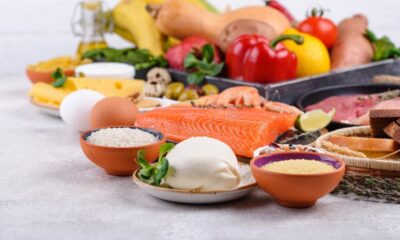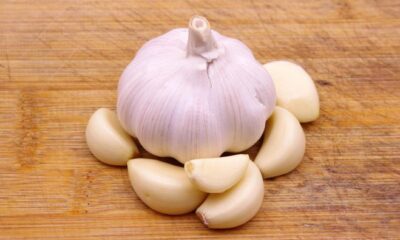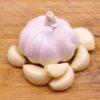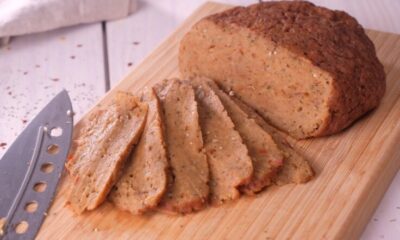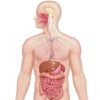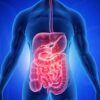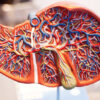The liver is one of the hardest-working organs in the body. It plays a crucial role in filtering toxins, processing nutrients, and supporting digestion. Over time, however, poor diet, environmental toxins, and lifestyle factors can put extra strain on this vital organ, making a liver detox diet a popular topic for those looking to support their liver health.
But what exactly is a liver detox diet, and is it necessary? In this article, we’ll explore the purpose behind detox diets, which foods can support liver health, and how to create a sustainable plan to help your liver function at its best.
What is a Liver Detox?
When people refer to a “liver detox,” they typically mean a diet or regimen that supports the liver’s natural ability to eliminate toxins and regenerate cells. The liver detoxifies the blood, metabolizes fats, produces bile for digestion, and stores essential vitamins and minerals.
While there is no magic “cleanse” or detox diet that can instantly improve liver health (and some liver detox programs are not supported by science), there are certain foods, nutrients, and lifestyle habits that can support the liver’s detoxification processes.
Why Does the Liver Need Detoxing?
Under normal circumstances, the liver does a remarkable job of removing harmful substances from the body. However, factors like alcohol consumption, poor diet (especially high in processed foods and sugars), exposure to environmental pollutants, and certain medications can overburden the liver. Over time, this can lead to a buildup of toxins, inflammation, and oxidative stress.
A liver detox diet is designed to reduce the burden on the liver, boost its function, and promote healing. It’s important to note that a liver detox diet should not be viewed as a quick fix, but as part of a long-term commitment to healthy living.
Key Principles of a Liver Detox Diet
- Eat Liver-Supportive Foods: The liver thrives on a diet that is rich in antioxidants, healthy fats, and essential nutrients. Incorporating the right foods can help enhance liver function and promote detoxification.
- Hydration is Key: Staying hydrated is crucial for detoxification. Water, herbal teas, and other hydrating liquids can help flush toxins from the body and support overall liver health.
- Limit Toxins: To give your liver the best chance to detoxify, it’s important to reduce your intake of alcohol, processed foods, added sugars, and trans fats. These substances can overwhelm the liver and lead to fatty liver disease and other health issues.
- Increase Fiber: Fiber supports digestion and helps remove toxins from the body by binding to them and assisting in their elimination through the stool.
Best Foods for a Liver Detox Diet
Here are some of the top foods to incorporate into a liver-supporting diet:
1. Leafy Greens
Leafy vegetables like kale, spinach, and arugula are rich in chlorophyll, which helps remove toxins from the bloodstream and supports the liver’s detoxification process. These greens are also high in fiber and antioxidants, both of which support liver health.
2. Cruciferous Vegetables
Broccoli, cauliflower, Brussels sprouts, and cabbage contain sulfur compounds that activate detox enzymes in the liver, helping to neutralize and eliminate harmful toxins.
3. Garlic
Garlic is packed with sulfur compounds that stimulate liver detoxification. It also contains antioxidants and can reduce inflammation in the liver, which is key for maintaining its health.

4. Beets
Beets are rich in betalains, a group of antioxidants that help reduce oxidative stress and support liver detoxification. The high fiber content in beets also supports healthy digestion.
5. Turmeric
This golden root is one of the best-known liver-supporting foods, thanks to its active compound, curcumin, which has anti-inflammatory and antioxidant properties. Curcumin has been shown to help protect the liver from damage and improve its ability to detoxify.
6. Lemon and Citrus Fruits
Citrus fruits like lemons, oranges, and grapefruits are packed with vitamin C, an antioxidant that helps detoxify the liver. The citric acid in lemons also stimulates bile production, which aids digestion and detoxification.
7. Green Tea
Green tea is rich in catechins, powerful antioxidants that help improve liver function and reduce fat buildup in the liver. Drinking green tea regularly has been linked to a reduced risk of liver disease.
8. Avocados
Rich in healthy fats, avocados contain glutathione, a potent antioxidant that supports liver detoxification. Avocados also help reduce inflammation and support overall liver health.
9. Apples
Apples are high in pectin, a type of soluble fiber that helps remove toxins from the digestive tract and reduce the workload on the liver. They also contain antioxidants that protect the liver from oxidative stress.
10. Carrots
Carrots are rich in beta-carotene, which is converted into vitamin A, an essential nutrient for liver health. The antioxidants in carrots also help reduce inflammation and support detoxification.
Foods to Avoid
While focusing on liver-supporting foods, it’s also important to limit or avoid certain foods that can contribute to liver damage or overwhelm its detox processes:
- Alcohol: Chronic alcohol consumption can lead to liver damage and disease, so it’s best to minimize or eliminate alcohol during a detox diet.
- Processed Foods: Highly processed foods are often high in unhealthy fats, sugar, and sodium, all of which put stress on the liver.
- Fried Foods and Trans Fats: These fats contribute to fatty liver disease and inflammation, so it’s important to avoid fried foods and products containing trans fats (often found in baked goods and fast food).
- Added Sugars: Excess sugar can lead to insulin resistance and fat accumulation in the liver, potentially leading to non-alcoholic fatty liver disease (NAFLD).
Additional Tips for Liver Health
- Stay Active: Regular exercise helps reduce liver fat, improve insulin sensitivity, and boost overall liver function. Aim for at least 150 minutes of moderate-intensity exercise per week.
- Sleep Well: Getting enough rest is crucial for liver repair and regeneration. Aim for 7–9 hours of quality sleep each night.
- Manage Stress: Chronic stress can contribute to inflammation and negatively affect liver function. Incorporating stress-reducing practices such as meditation, yoga, or deep breathing exercises can help support your liver health.
Final Thoughts
A liver detox diet can be an effective way to support your liver’s natural detoxification processes and promote overall health. By focusing on nutrient-dense, whole foods and avoiding liver-harming substances like alcohol and processed foods, you can give your liver the support it needs to function optimally. However, it’s important to remember that there is no “one-size-fits-all” approach, and any detox or dietary change should be discussed with a healthcare professional, especially if you have existing liver conditions.
Ultimately, a long-term commitment to a healthy diet, lifestyle choices, and regular liver support can keep this vital organ functioning at its best for years to come.






